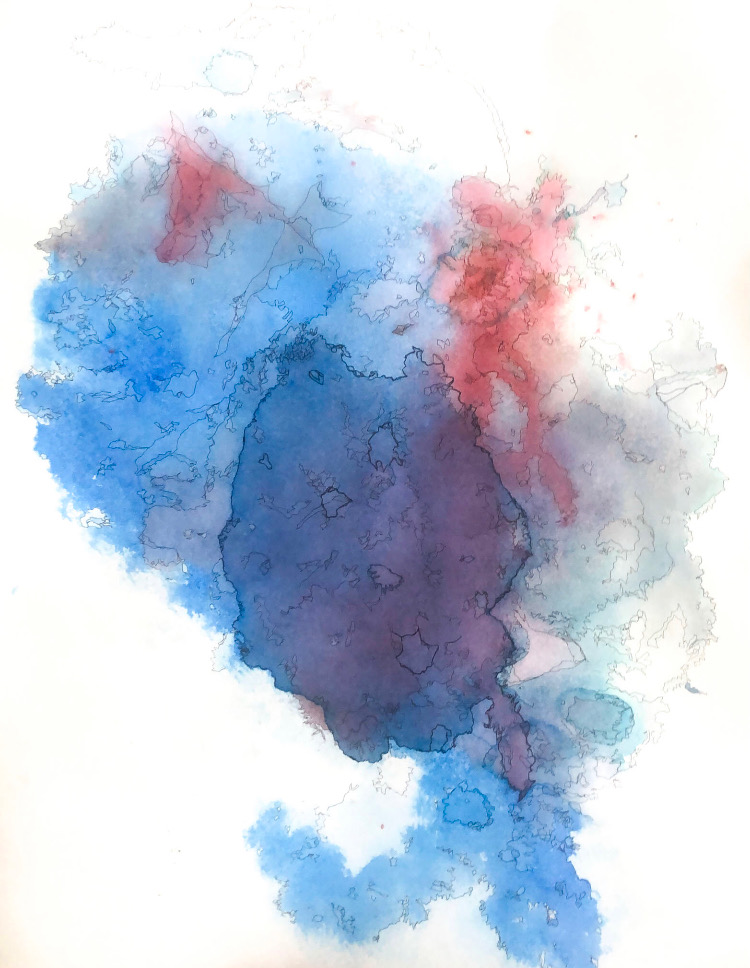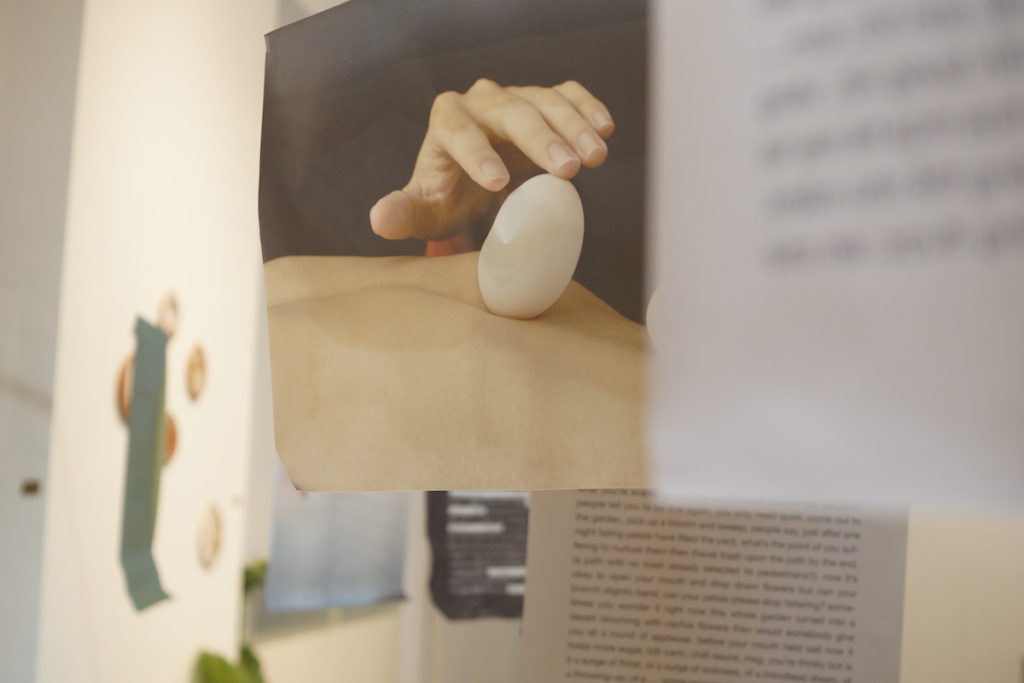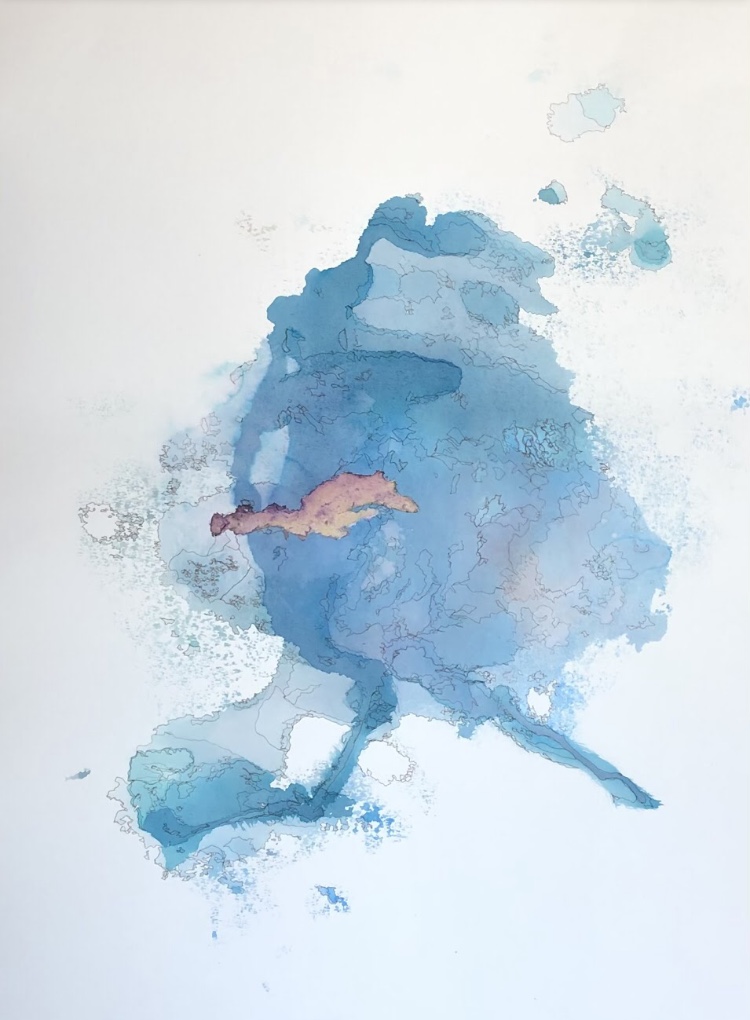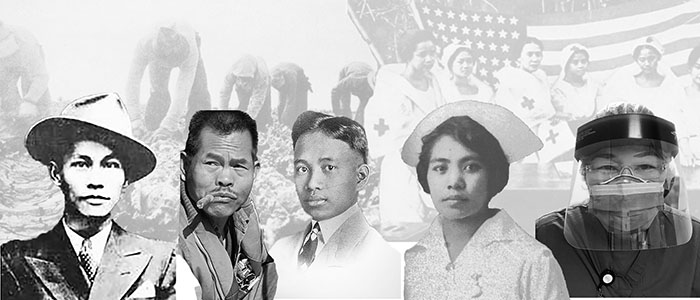When my mother and I were hopeless, buckling under the weight of our unanswered prayers, she taught me that laughter can be a way of creating our own mercy.

December 11, 2020
Hours after we buried her, my cousins brought a bottle of Crown Royal to the kitchen table and poured shots for grandma. She hadn’t been in the earth twelve hours before granddaughters started to double over in her front yard. The first to break away staggered from the lanai, careful to avoid staining her brilliant white dress as she heaved wontons from the wake onto wet grass.
In the years before she passed, grandma told us not to wear black to mourn her. Her funeral taught me that Ilokanos wear white to grieve and how to tell eggshell from porcelain from cream. In the weeks leading up to her burial, the women of my family squinted at yards of fabric, learning how to discern the difference of a shade, all so we could look oh-so pretty in our mourning lace as we loosened our hold on our red solo cups and cackled.
Before midnight, grandma’s youngest daughter, my mother, sauntered up to the table and picked up a cup herself, the rims of her eyes the color of a raw steak. She lifted it to the ceiling, to the windows grandma could never clean and the pots and pans sitting out of reach, and cried out a toast. In our echo of her, our heavy chorus sounded something like joy.
Before the toast, before the dancing, before the heaving and the eating and the shots, we attended the wake. A collage stood beside the coffin, grandma laughing with us from the center of the patchwork of photos. Seated in a plastic chair, she grinned to show off a new pair of ivory dentures, hands hoisted to the camera with two middle fingers up. This photo shone bright during the eulogies, as a cousin recalled one of grandma’s old dating mantras, imitating the accent that sharpened her Fs to Ps. “You puck, and puck, and select the best,” she said, and just for a moment our weeping stuttered with the absurdity of it all and we laughed.
Grandma would sit on the lanai as I played in the front yard, always at the ready to encourage my nonsense. When I needed an audience for my Disney songs or a round of fluttering, beautiful eyes, she was there, ready to clap and coo and cheer. But on most afternoons, we sat in quiet, listening to the wild hens and their peeps of chicks march across the grass.
At the edges of the yard, concrete crumbled into pebbles that sheltered the armored bugs with many names. Pillbugs, potato bugs, roly-polies—there were so many of them crawling across the dirt that I never felt the pressure to choose just one. I’d spend hours creeping along the frayed edges of our driveway, peeking beneath the rocks. My eyes were quick to spot a bug, my hands even quicker to snatch it up in a firm, gentle hold.
Ignore the pain, ignore the loss, ignore the doom looming over the horizon. Find the details that bring light to you. Leave the rest.
When I was a child in the truest sense, all lightness and chubby hands, I’d take the bugs to my grandmother in offering. Wait until she leaned forward to shock her with the sight of a roly-poly on its back, with its squirming legs and the strange simplicity of its ink dot mouth. But the thrill was fleeting. I’d lose interest within minutes. Lower their wriggling legs to the ground. They’d disappear so quickly when I let them go.
As I grew older, I learned that being happy can feel like this. A hunt. A scramble. A rush to find a single moment of lightness and enjoy it while we can, as if the chemicals in our brains were little isopods, scuttling from the soft tissue of our brains to hide under stones.
When my mother and I were hopeless, buckling under the weight of our unanswered prayers, she taught me that laughter can be a way of creating our own mercy; how to find humor in despair. Humor is, in part, the recognition of incongruity. I couldn’t have known then, hunting for bugs in the grass, that our lives would have incongruities to spare. My mother wanted a husband to sweep her off her feet, but he was swept away without her. She wanted to live in a house he’d built, and it turned out to be her mother’s. She’d wanted smart children and gave birth to three smart, scathing mouths. Ignore the pain, ignore the loss, ignore the doom looming over the horizon. Find the details that bring light to you. Leave the rest.
When I share the story of grandma’s death, I start with the humor. I pull the listener to the dining table and pour a shot of shitty whiskey (Regal Apple) into their glass. Tell them how a cousin introduced his boyfriend to the family at the funeral; how they took turns deepthroating a wine bottle as we cheered. Show them the videos of mom dancing in circles, arms swaying overhead and alcohol glowing on her cheeks.
I don’t say that when I peered into her coffin, I cried so much that mom held me for the first time in years. Or that as joyful as her funeral appeared, grandma was terrified of death. As her husband wasted away on their bed, an oxygen tank thrumming along beside him, she seized any chance she could find to steer clear. She was a nervous woman knit together by soft chuckles and smiles. She relied on my mother with a skittish ferocity that she’d pass onto most, if not all, of us. Once, mom claimed that she could hear grandma from her bedroom, shouting at ghosts in the corner and begging God to let her live.
For years, mom took me aside before I left home to pass on whispered warnings: tell grandma you love her and be prepared. In my senior year in college, she was startled by a crash at the witching hour and found grandma convulsing on the bedroom carpet. She called me in the early morning and told me to look into the cost of a ticket home. But grandma surprised us all then, and survived. I don’t remember much of her laughter after that. On my next visit home, I found her sitting in silent rooms, staring at the walls.
We lost her not in a crash, but a slow decline. Towards the end of her life, grandma lost her senses in the old, odd, mundane ways. She added too much oil to her food and cooked too many pots of rice. She placed a book in the freezer and, when confronted, claimed she was being framed. She became short-tempered and irrational, snapping at the great-grandchildren who wandered into her room. They were trying to steal from her, she said, two-year-olds searching for money to thieve.
Once, when I called home from across the sea, mom shook her head, her hair swaying on my computer screen. “She doesn’t want to die.” At the time, we thought it was fear that kept her with us as long as we had her. It made sense to us, at the time. It always seemed to be a stronger motivator than love.
In my family, the women laugh most of all. It was the women who taught me how to laugh when a man leaves you, to laugh when a parent aims to hurt. The aunties laugh the loudest, lighting a candle for the Virgin in one moment and calling themselves witches in the next. Only witches could find humor in how a world falls apart. Only a witch could jeer at death. I learned early that my grandmother was the strongest of them; that she had a talent for making joy out of nothing at all.
She paused and lifted an imaginary rifle to her cheek. Her chin click-click-clicked into place, eyes drawn to the ceiling, the windows, the dusty pots and pans.
Before I’d outgrown the princess songs and replaced the potato-roly-poly-pillbug hunts with assignments from school, she sat me at the kitchen table and tried to teach me the word “buntis.” The lesson was embedded in a story, the one about the soldiers from Japan. They walked into her town when she was just a girl and stopped when they saw a woman alongside the road, her middle swollen with life. Buntis.
They stabbed her. Grandma never said it, but she showed, raising her hands, gripping the handle of a ghostly blade, and plunging forward with a cry.
The babies, grandma remembers. The soldiers always wanted the babies. She watched them tear squirming newborns out of a mother’s arms, and pull them away as they screamed.
“What next?” I’d ask.
Grandma answered. Mom translated. “Threw them, she said.” They’d throw the babes as high as they could, up into the sky.
Grandma repeated this memory often. Once, at the dining table, she added a bit of flair. She paused and lifted an imaginary rifle to her cheek. Her chin click-click-clicked into place, eyes drawn to the ceiling, the windows, the dusty pots and pans. She aimed, placing a finger carefully on the trigger and closing one eye. The smack of her lips. Shoulders bucking in a practiced imitation of recoil. BRRAP BRRAP BRRAP.
Mom and I never knew what to say. We’d watch in silence as grandma let her hands fall. She looked at our stricken faces and breathed out a laugh. To this day, I struggle to remember the word she used for “pregnant.” I think of taut round bellies when my relatives say “hapon.”
In my last summer with her, grandma sat my sister, mother, and me at the kitchen table to tell us stories about the Philippines without babies or guns. She told us her love story; how she was a laundress and grandpa was a baker who spotted her from across the room. When she left, mom and I talked about how we’d seen life in her that day. How strange it was for her to share so much.
After the funeral, I flew back to the mainland, thinking of the family I’d left behind. A few days later, my phone rang. My sister was on the other end, her voice frayed with tears. She was helping mom clear out grandma’s old room, digging through the mess of blankets and trinkets and trash. They separated her belongings into piles—rubbish, hand-me-downs, items mom had been searching for for years—until finally, they found a battered piece of luggage under the bed. They pulled it out, shook it off, coughed at the dust. Mom pried it open with a grimace, expecting to find it packed with clothes that stunk of mothballs and musk. Instead, there was a mess of wallets inside.
Across the phone line, across a sea, I fell apart with them, thinking about how our packrat of a matriarch squirreled these pieces of us away for years.
They looked at each other, remembering grandma’s tall tales about the wealth hidden in her room. Mom had teased her for them most of all, joking that only the rich were so protective of their bills. Thinking her mother had the last laugh, she opened the first wallet. My sister followed suit.
They were filled with photos. Billfolds of family, her grandchildren from infancy to adulthood. My brother playing in the front yard, ankle deep in a plastic pool. My sister sitting on green, lush grass, shrieking as she clapped her hands. A photo of me at an elementary school assembly, holding a cardboard Hello Kitty boogie board outside of my kindergarten class. They sat there sobbing on the floor of grandma’s room, holding memory after memory between their fingers. Across the phone line, across a sea, I fell apart with them, thinking about how our packrat of a matriarch squirreled these pieces of us away for years.
In my last memory of her, grandma looked out across her front yard as I left for the airport. Our old pickup had a hole over the front tire with a mystery sprout poking up out of the rust. As we pulled out of the driveway, I rolled down the window and waved goodbye to her above two green broad leaves. She watched me so intently, her eyes fixed on me from behind the dirt of our old screen door.
We stayed on the phone and cried together, us daughters. Then, just when I thought we’d never stop, I heard my mother giggling in the background, the sound lilting and bright. “That crazy old lady had no money after all.”



